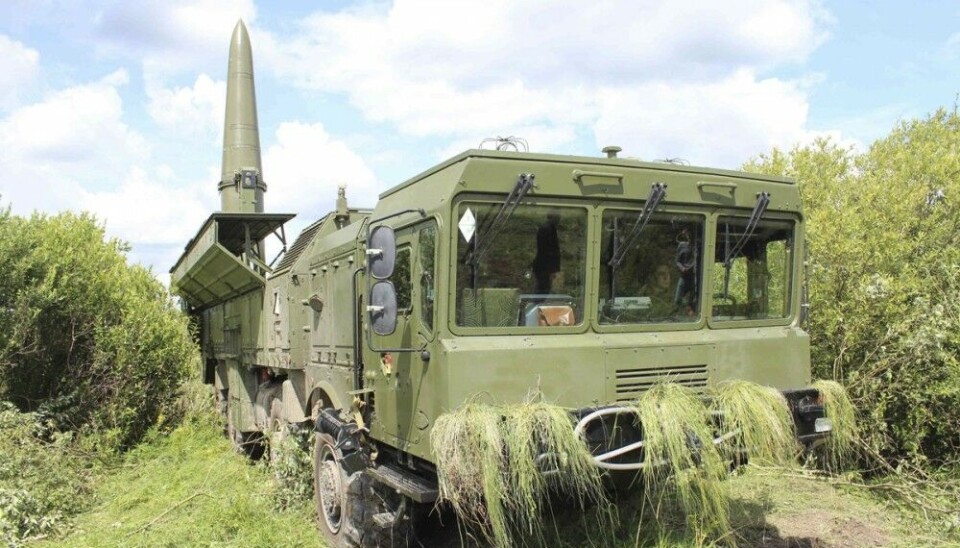
Finland relaxed over Moscow’s plans to deploy Iskander-M missiles near border
A new missile brigade will be deployed in Karelia as part of the reestablished Leningrad Military District. Countering response to Finland joining NATO, Moscow says.
“Iskanders performed very well during the Special Military Operation [read: war], so the Finns should know that if something happens, such joy can come to them,” military expert Dmitry Boltenkov said to Izvestia.
Iskander-M is mobile and each vehicle can carry two missiles. The missile flies ballistic at a hypersonic speed of Mach 6 and has a range of 400-500 kilometers.
Several different conventional warheads can be attached to the missiles, including a cluster munitions warhead, enhanced-blast warhead, high-explosive fragmentation warhead, an earth penetrator for bunker busting and an electromagnetic pulse device for anti-radar missions, according to Wikipedia.
The missile can also carry nuclear warheads.
Moscow has repeatedly said Finland’s decision to join NATO is provocative and will destabilize the security landscape in northern Europe.
“Given NATO’s desire to build up military potential near the Russian borders, as well as to expand the North Atlantic Alliance at the expense of Finland and Sweden, retaliatory measures are required to create an appropriate grouping of troops in Northwest Russia,” Defense Minister Sergei Shoigu previously said.
Fact is that it was Russia’s brutal and unprovoked war of aggression against Ukraine that destabilized geopolitics in all of Europe. Finnish NATO-membership was not on the political agenda in Helsinki before February 24, 2022.
Finland shares a 1,340 km border with Russia from the Baltic Sea in the south to the Kola Peninsula in the north. The border has been closed by Helsinki since last fall when Russia’s FSB directed huge crowds of migrants to enter Finland in what Finnish authorities have called a hybrid operation.
Russia has previously flexed military muscles with the Iskander-M missile system near the NATO border. In 2017, during exercise Zapad, a Iskander-M missile vehicle suddenly appeared in the Pechenga valley only a short 15 kilometers from the border with Norway.
Finland joined NATO in April 2023, a move that caused Russia to restructure its military forces by depriving the Northern Fleet of the status as a military district. Reestablishing the Leningrad Military District is considered a sign that Russia’s military planners now see the entire western border as one theater of operation in case of war.
“If this comes true, it won’t change anything,” writes retired Major General Harri Ohra-aho in Twitter.
“In any case, one should defend against Iskander missiles,” the Major General argues, pointing to the fact that such missiles already are deployed south of St. Petersburg.
Jos tämä aikaa myöten toteutuu, se ei muuta mitään Suomessa. Iskander-ohjuksia vastaan pitäisi joka tapauksessa puolustautua (aikaisempi lähin tukikohta ennen Ukrainan sotaa on ollut Pietarin eteläpuolella Ylä-Laukaassa). https://t.co/JKmjNMgFyO
— Harri Ohra-aho (@Ohra_aho) April 23, 2024
Ohra-aho is Senior Advisor for International Security and former director of the Finnish Military Intelligence.
He elaborates:
“Of course, it’s none of my business, but operationally it seems absurd to bring missile systems with such a long range closer to our border, they make easy targets for us.”














